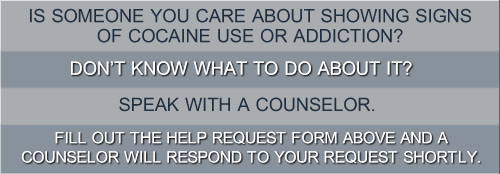
Identifying Signs of Cocaine Use
A Brief Introduction To Cocaine
Cocaine is a recreational drug that directly affects the brain. Cocaine is very popular, although it is considered to be a controlled substance around most of the world. Cocaine and crack cocaine are produced from the coca leaf which is frequently found in hotter climates like Bolivia, Peru and Colombia. This drug is rarely produced in the USA and is frequently imported from abroad illegally. Cocaine has many different street names include coke, snow and c. Due to the fact that the drug is illegal and because of the way it is sold to users, many do not get strict recreational cocaine. Many dealers mix the cocaine with talcum powder to make it thicker and more profitable, but others mix it with percocet and other drugs that may be dangerous when mixed with cocaine, particularly if the user is already taking another substance.
Cocaine is a very addictive drug, although it does not create physical addiction. Addiction is purely psychological with those that want to quit experiencing intense withdrawal effects. There is also a bigger relapse risk than with most other drugs. Users do build up a tolerance from it and need to have a higher dosage to get the same high that they managed to achieve when just starting to consume the drug. The brain quickly adapts to the amount of dopamine that it is getting, the neurochemistry changes and the user needs to have more and more of the substance to experience the same euphoric feelings. It gives users an intense euphoric feeling that lasts up to half a hour. Although cocaine can be used medically, it simply cannot be used safely if it used recreationally - it is only safe to do so under medical supervision.
What Are The Signs of Cocaine Use?
There are several signs that an user has taken cocaine. Immediately after the user takes cocaine the user will become euphoric, talkative, and overall seem rather happier than he or she was before. One of the telltale signs of cocaine use is rapid and incessant chattiness. The user might become very talkative, even if the user is quiet most of the time. The user might also experience feelings of joy and intense euphoria, increased hyperactivity and a huge burst in energy. Immediately after taking cocaine the user is likely to have dilated pupils and constricted blood vessels. This will show to others as strange and big bloodshot eyes. The user might also have increased body temperature and in some rare cases might begin to sweat profusely. After the user has taken cocaine, his or her blood pressure is sure to go up.
The user might experience anxiety, panic, irritability and restlessness, although these are less common and are more likely to happen after a big dose taken by an inexperienced user. Taking large amounts of cocaine may cause violent and erratic behavior in users. In some rare cases, users might experience tremors, vertigo and violent nausea after taking the drug. Again, these are extremely rare cases. Some users have died from taking cocaine. In part this might have been because they had a heart attack or seizures due to respiratory address. This may also be caused due to mixing drugs with cocaine. This might be due to the other drugs that the user may have taken or drugs that the user is not aware are in the cocaine he or she might have consumed.
Right after the user 'comes down' from the high, he or she might experience irritability, anxiousness and a feeling of fatigue. The user might experience a loss of mental clarity.
Recreational cocaine users are very likely to start abusing the drug and they could become drug dependent or completely drug addicted. Using cocaine may completely transform the user's life, interfere with work and school and social and family relationships. Personal hygiene and appearance standards may change considerably after the user has become cocaine dependent.
Cocaine abuse can lead to strange sleeping patterns and a change in appetite. The user is likely to stop eating as much, sleep for long and strange hours, and lose interest in hobbies that they used to have. The user might considerably increase the time they spend by themselves and slowly move out of their social circles. Some other physical signs of cocaine are those that are very similar to the common cold, including constantly bloodshot eyes and a runny and reddened nose. Some long term signs of cocaine abuse may include respiratory illnesses, problems in the sinus including headaches and asthma and fluid in the lungs. Users may also lose their sense of smell and taste, depending on how much and how long they have used cocaine for. Extended use of cocaine may cause difficulty breathing and can cause asthma. These effects vary greatly depending on the way that the user has consumed the drug - for instance, the user will not be affected through the nose if he or she has mostly consumed the drug orally.
Users that are drug addicted or drug dependent will show the same signs as those that are addicted to other drugs, too - loss of motivation, difficulty concentrating and overtime they might develop mental health problems and physical problems that can last a lifetime. Cocaine users are also much more likely to be involved in risky sex and are considered to be at risk for acquiring HIV and other sexually transmitted diseases. Users are also much more likely than those that do not use cocaine to get infected with Hepatitis B and Hepatitis C. These can be lifelong problems if they are not treated soon enough. Users that take cocaine intravenously are at a much higher risk than those who take cocaine any other way, although users are more likely to proceed with high risk sexual behavior when they are taking drugs. If you or someone you love thinks you might be addicted or dependent on cocaine, contact a mental health professional that specializes in addiction for help.
- Questions?
